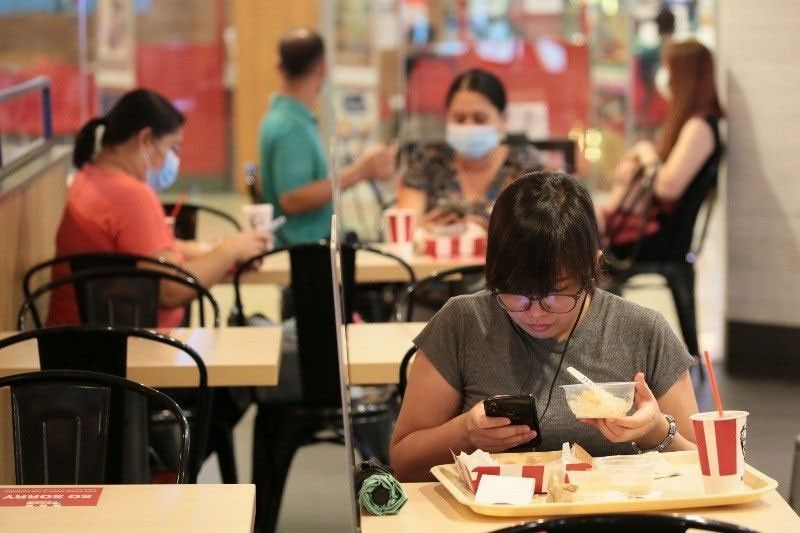Restaurateur urges government: Allow dine-in at 40-50% capacity

MANILA, Philippines — The government should consider allowing restaurants to offer dine-in services at 40 percent capacity to help the sector recover, a restaurateur said.
Advent Manila Hospitality Group Inc. president Andrew Masigan made the push for allowing dine-in services during an interview with “The Chiefs” on Cignal TV’s One News on Wednesday night as he said restaurants cannot survive on takeout alone.
“If we can be allowed (to offer dine-in at), 50 percent, 40 percent, that is workable. At least, we can pay payroll. At least, our employees will not go hungry or would not worry about where their next meal will come from because at the moment, it’s all being shouldered by the corporation itself or the business owner himself,” he said.
Restaurants in areas under modified enhanced community quarantine like the NCR, are limited to offering takeout and delivery.
Masigan said restaurants are also supporting the vaccine bubble being proposed by presidential adviser for entrepreneurship Joey Concepcion instead of implementing lockdowns to help them recoup losses.
Under the proposed vaccine bubble, vaccinated individuals would be allowed in establishments in malls such as restaurants, salons and gyms following the presentation of a vaccine card, while the unvaccinated would have to show a negative reverse transcription-polymerase chain reaction or antigen test result within 48 hours prior to entry.
Earlier, Trade Secretary Ramon Lopez had proposed that restricted sectors during lockdowns such as dine-in restaurants, personal care service establishments as well as indoor and outdoor exhibits be allowed to operate at 20 percent capacity for vaccinated workers and customers to encourage vaccination and help restore jobs.
“One thing is for sure. The lockdowns cannot go on indefinitely and lockdowns cannot be hoisted each time there is a surge. It’s just not a viable solution,” Masigan said.
He said many businesses currently lack cash flow and if more of them are unable to pay their loans, non-performing debts of banks would continue to pile up which may lead to the collapse of the financial system.
Masigan, who is also an economist and sits in the Spanish Chamber of Commerce and European Chamber of Commerce of the Philippines, also said restrictions on face-to-face classes in schools are among the reasons for capital flight.
“The policy of the IATF (Inter-Agency Task Force for the Management of Emerging Infectious Diseases) to not allow children to go to school is appearing or emerging to be the biggest reason for capital flight because foreigners and expats are leaving in alarming numbers together with capital and expansion plans. It’s been a year and a half, and their children have not been in school and it’s not healthy for their mental well-being,” he said.
As a solution, he said the country may implement face-to-face classes with fully vaccinated teachers and staff and allow students to only traverse from the home to the campus.
With a majority of students not yet vaccinated, he said there should be regular testing every two weeks.
“I think public schools need to be subsidized, but the private ones I think have the bandwidth to be able to charge…Testing is part of the equation to fight this pandemic and leading toward normalcy. That has to be put part of the equation,” he said.
- Latest
- Trending
































